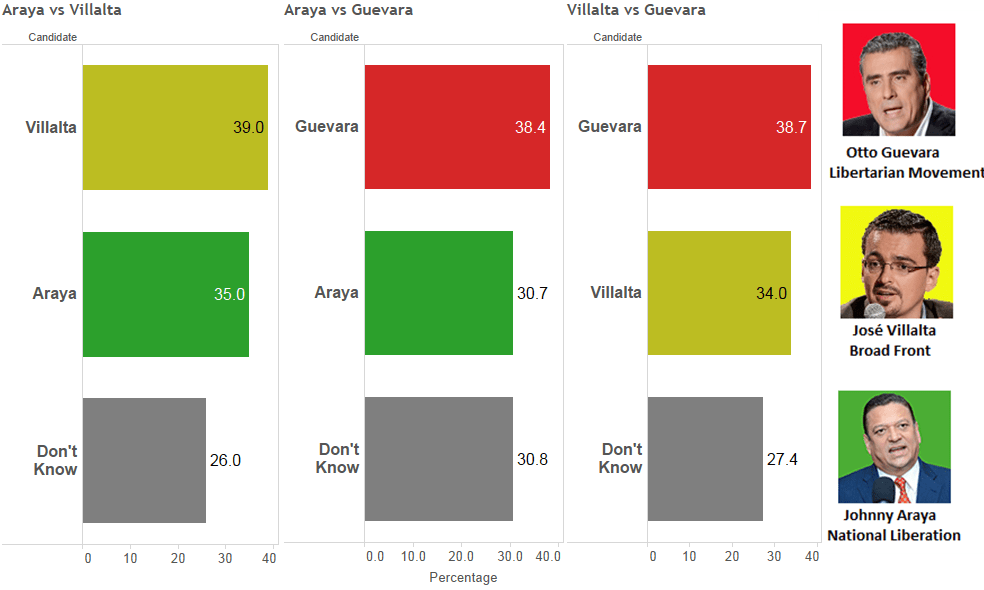A second round of voting in April in Costa Rica’s presidential race could turn the dynamics upside-down, as current third-place candidate Otto Guevara would be favored.
This is according to the latest poll released by the daily La Nación, the first time a public poll has examined scenarios if no candidate succeeds in getting more than 40 percent of the vote in the first round.
The poll ran three scenarios between the top polling candidates – the ruling National Liberation Party (PLN) nominee Johnny Araya, the progressive Broad Front Party candidate José María Villalta, and the Libertarian Movement Party’s Guevara.
Guevara likely would defeat both Villalta and Araya – if Guevara makes it to the second round – while Araya would lose to Villalta, La Nación’s poll predicted.
“I am profoundly grateful for this massive and growing support from Costa Ricans,” Guevara said in a statement. “Our message is honest and transparent and the people have understood it.”
Guevara has benefited in recent months from receiving support from former and current members of the formerly dominant right-of-center Social Christian Unity Party (PUSC).
Costa Rican elections go to an automatic runoff if no candidate wins more than 40 percent of the vote. This has only happened once, in 2002 when Abel Pacheco of PUSC won 38.6 percent of the vote in the first round. He went on to win 58 percent in the runoff over PLN candidate Rolando Araya.
The likelihood of a runoff in this year’s Feb. 2 election has grown if the polls are accurate. No candidate has received more than 40 percent of the likely vote since Araya garnered 45 percent from a Gallup poll in November. Even that poll has appeared to be an outlier with Araya’s support hovering between 20 percent and 28 percent in multiple polls between September and November.
In the hypothetical matchups, between 30.8 percent and 26 percent of respondents either refused to pick a candidate or said they did not know.
Polling took place Jan. 6-12 according to La Nación, and had a margin of error of 2.2 percent.






